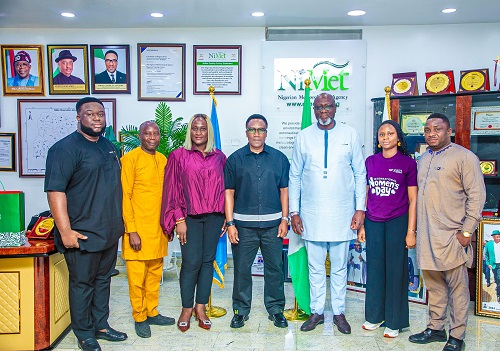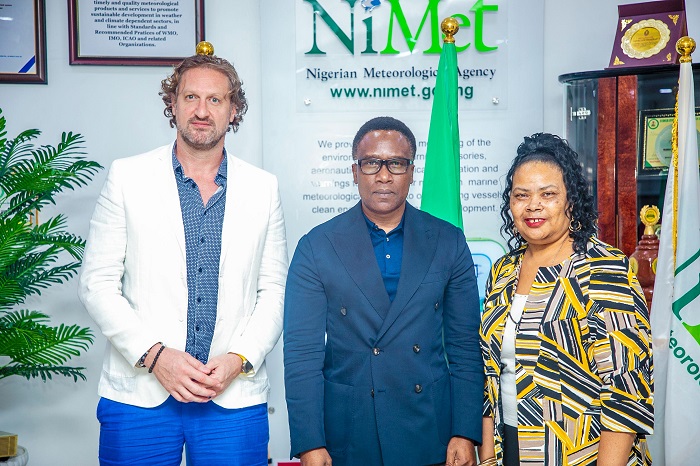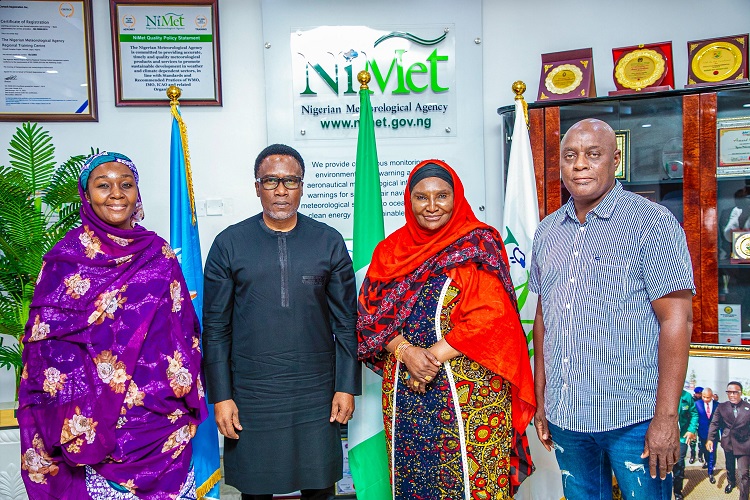The Nigerian Meteorological Agency (NiMet) has entered into a **climate-smart agriculture partnership** with the Special Agro-Industrial Processing Zones (SAPZ) Program. The initiative aims to strengthen weather-related decision-making and improve agricultural resilience among smallholder farmers and agro-processors in Nigeria.
The collaboration was formally launched in Abuja. It will begin implementation across seven pilot states—Cross River, Imo, Kaduna, Kano, Ogun, Oyo, and the Federal Capital Territory (FCT). The roadmap includes plans to eventually scale this program nationwide to benefit more farmers.
NiMet and SAPZ will provide farmers with access to seasonal climate forecasts, real-time weather alerts, and specific advisory services. These services are designed to reduce risks from unpredictable weather and help farmers increase productivity.
Director-General and Chief Executive Officer of the Nigerian Meteorological Agency, Professor Charles Anosike, expressed strong support for the initiative. “We are proud to support SAPZ’s vision with timely, accurate, and accessible climate information. No farmer should be left behind in the climate-smart agriculture movement,” he said.
The SAPZ Program is a five-year national initiative co-funded by the African Development Bank (AfDB), International Fund for Agricultural Development (IFAD), and Islamic Development Bank (IsDB). Its broader goal is to promote inclusive agro-industrialization, increase rural incomes, and decrease Nigeria’s reliance on food imports.
National Program Coordinator for SAPZ, Dr. Kabir Yusuf, highlighted the importance of adapting to climate challenges. He stated, “This collaboration with the Nigerian Meteorological Agency (NiMet) will provide actionable climate data and advisory services to farmers and agro-processors, thereby enhancing productivity, minimizing losses, and fostering resilience.”
Through the agreement, NiMet will deliver rainfall predictions, localized forecasts, and training sessions for agricultural extension workers. They will also install mini weather stations and develop innovative digital tools to support farmers with instant weather alerts and guidance.
SAPZ, in turn, will integrate this data into its Agricultural Industrial Hubs and Transformation Centers across the pilot states. These hubs serve as central facilities for training, equipment deployment, and other forms of infrastructural support.
To monitor implementation and ensure results, a joint technical committee has been set up. This committee will oversee progress, create localized crop calendars, and develop smart farming solutions like precision agriculture systems.
The agreement is initially valid for five years. However, both organizations have expressed commitment to extend the collaboration into a long-term framework. This framework will align with Nigeria’s national adaptation strategy to climate change and ensure lasting benefits for rural communities.
This **climate-smart agriculture partnership** underscores the necessity of integrating scientific data into everyday agricultural practices. It also shows the federal government’s commitment to building climate-resilient farming systems across Nigeria.
























